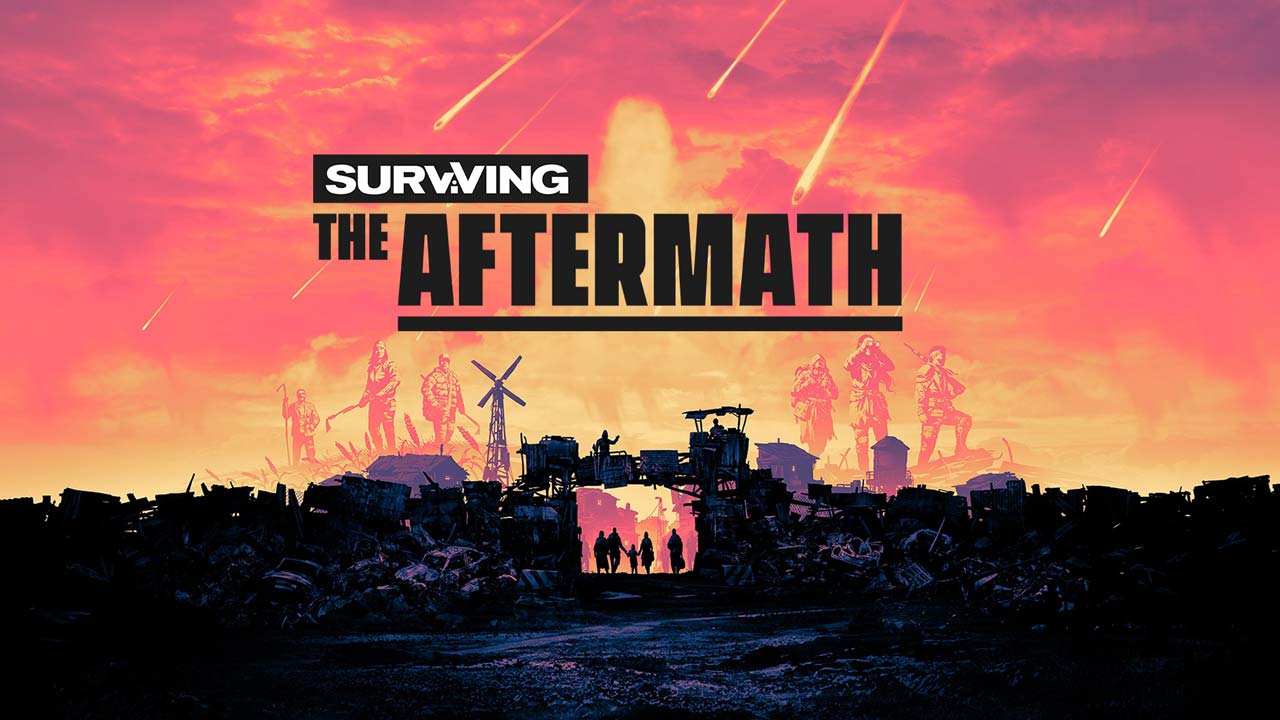
8 Surviving The Aftermath Tips & Tricks
A new game has hit the Early Access sky and it has brought us a lot of strategic gaming fun! Of course, I have 8 Surviving the Aftermath tips & tricks for you to help you while gaming.
The Surviving the Aftermath Guide will be updated from time to time, as the game is in Early Access for a year and will of course change constantly.
1. Let the warehouse work clearly
At some point you will have several warehouses in which resources such as cement, berries and wood can be stored. The advantage of the warehouses is that you can flexibly move the work area and adjust the range .
Although the flexible radius allows you to select multiple sources at once, it is better to keep the radius as small as possible for clarity and effectiveness. As soon as the message appears on the left that a source has dried up, you can quickly select another one and not accidentally lose track.
Make sure that you always select resources that can be mined and that production never stops . You should also make sure that you always mine what you need , or that you always mine wood and cement at the same time.
2. Prepare properly for disasters
In Surviving the Aftermath, you will encounter various disasters that will make your survivors' lives even harder. That's why you should be well prepared!
Every disaster causes fear of death among your residents, causing them to work slower!
heat wave
As the name suggests: it gets pretty hot! The residents are thirstier and the fields can dry out. What definitely makes sense is to build more wells and boreholes , as well as large water towers , and thus create a generous water supply.
Greenhouses and insect farms are a good backup and can keep the food supply stable, because only fields can dry out.
magnetic storm
During this event, the power supply reaches its limit . To prevent outages, battery packs should be set up in good time (or already in place). It is also advantageous not to demolish important, "weaker" buildings that do not require power and to keep them ready to start as a reserve.
meteor shower
If this warning comes, you should have enough resources in reserve, because any building can be affected. If the warning pops up, you should not build any more buildings to be on the safe side and save the materials.
If a building is hit, simply press the tool icon above the building to have it repaired. Warning: If you take too long, it will burn down completely and you will have to rebuild it from scratch!
radioactive fallout
This dangerous rainfall will spoil your fields and make the population sick . For this reason, you should start harvesting the fields as soon as the news appears. If your community is more advanced, insect farms and greenhouses are a safe source of food because they are not affected by the rainfall.
Regarding the health of your residents: Better housing can protect people a little from the radioactive rain. But you'll be on the safe side if you have several manned supply tents or field hospitals .
epidemic
In such an emergency, it is important to provide enough medical stations , because in the worst case scenario, an epidemic can wipe out the members of the community. Field hospitals treat patients more quickly , but they also cost more resources and use more electricity.
3. Adjust work distribution
Depending on what is currently at hand, whether it is the extraction of raw materials or an impending disaster, you can adjust the distribution of work .
If, for example, an epidemic breaks out, you will not only need more infirmaries, but also more staff. Therefore, all possible infirmary positions should be filled during and shortly after the epidemic.
This is of course also possible with the porters , who are responsible for, among other things, lugging materials back and forth. If, for example, new accommodation needs to be built quickly because some survivors have to sleep outside, you should increase the number of porters. To do this, take a few workers away from other buildings who are currently doing work that is not so urgent. They will then automatically get to work and complete projects more quickly.
4. Properly skill the technology tree
Experts can find research points on the world map. These points can be used to unlock various developments . Since they are not
The top priority should be food , because without food the population can't survive. The best thing to do is to first unlock "Communal Food" , which will allow you to build the cooking house and increase the food supply.
After that, the colony should be upgraded with "Common Living" so that better houses can be built. The happiness and productivity of your people will increase and they will be better protected from radiation.
The completion of basic supply should be the "Barter" in the exploration branch . With this achievement you can build the trade center. It attracts more traders to your gate and this is an important way to balance this situation, especially when resources are scarce.
Everything else can be skilled as needed.
5. Grow food
Food and water can quickly become a sensitive issue, so you should always keep an eye on them.
At the beginning, berries are a reliable source of food, but they should be quickly supplemented with fields , because the berry bushes will eventually all be grazed (or quite far away).
Fields are best planted where the grass is particularly green , as this is a sign of nutrient-rich soil.
As mentioned above, you should skill the food branch in the technology tree as quickly as possible so that the cooking house is unlocked. With this building, food production becomes even more effective .
At some point during the game, a large portion of food production should also be moved indoors , meaning greenhouses and insect farms must be built. This is especially important if a heatwave or nuclear fallout hits the land.
6. Make optimal use of experts
Experts have their strengths and weaknesses and should be used optimally based on their strengths. Of course, at the beginning you cannot immediately focus on your strengths with just one expert, but rather get a picture of the world map.
Soon you will have your first group of experts together and they should be deployed according to their abilities .
Experts with a high exploration score should be used as scouts . They can cover slightly longer distances than their colleagues and gradually uncover the map.
If you are good at attack and defense , bandit camps are the best place to go. They can eliminate enemies most effectively.
Loot experts are those who can get the most out of places with loot .
Experts with a high research ability are best advised to go where research points can be obtained.
7. Don't overdo it
Even though things are going really well for you economically and more and more people are showing up at your gate seeking shelter, don't accept all requests !
Even if you think you have enough space and supplies to accommodate a lot of people, a few too many people can quickly break your neck. Resources are quickly used up and to top it all off, a catastrophe may occur and you've lost a lot of your population.
Therefore, avoid rapid growth of your population and instead direct your requests towards the experts you need for your small colony. Also, try to avoid groups with too many children if you don't have a school yet. Then they grow up as uneducated workers and are not as efficient as educated ones.
Also, remember that your population is capable of reproduction ! This means that the population does not only grow through requests from outside, but also from within.
8. Feedback to the developers
The last tip is a bit unusual, but very worthwhile. Surviving the Aftermath is now said to be in the Early Access phase for exactly a year , during which the developers will continue to work hard to improve the game.
They also specifically ask for feedback, which is super easy to do via the ladybug in the top right corner of the screen.
Take the time every now and then and leave some feedback, because it not only helps the developers themselves, but also benefits the players.
When do you ever get the chance to be so actively involved in a game production!





